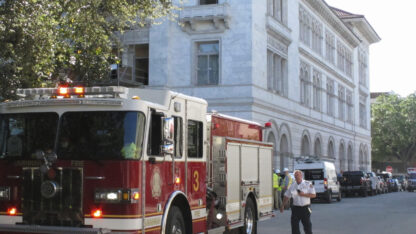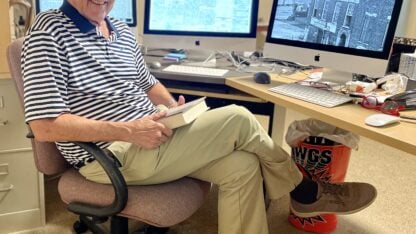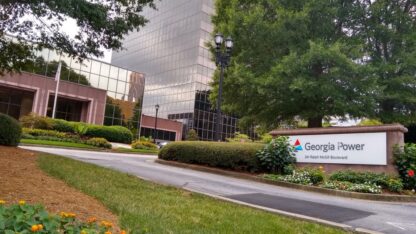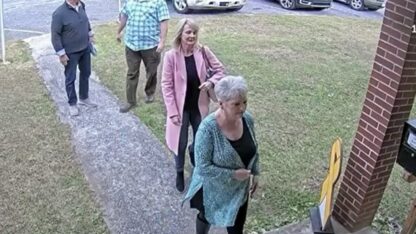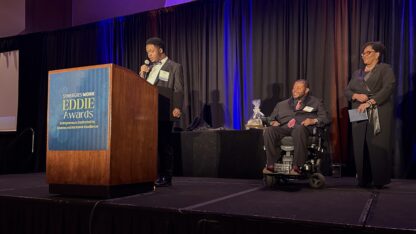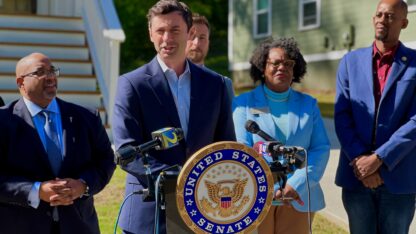Reimbursement Delays Continue To Take Toll On Atlanta’s HIV/AIDS Housing Program, Advocates Say
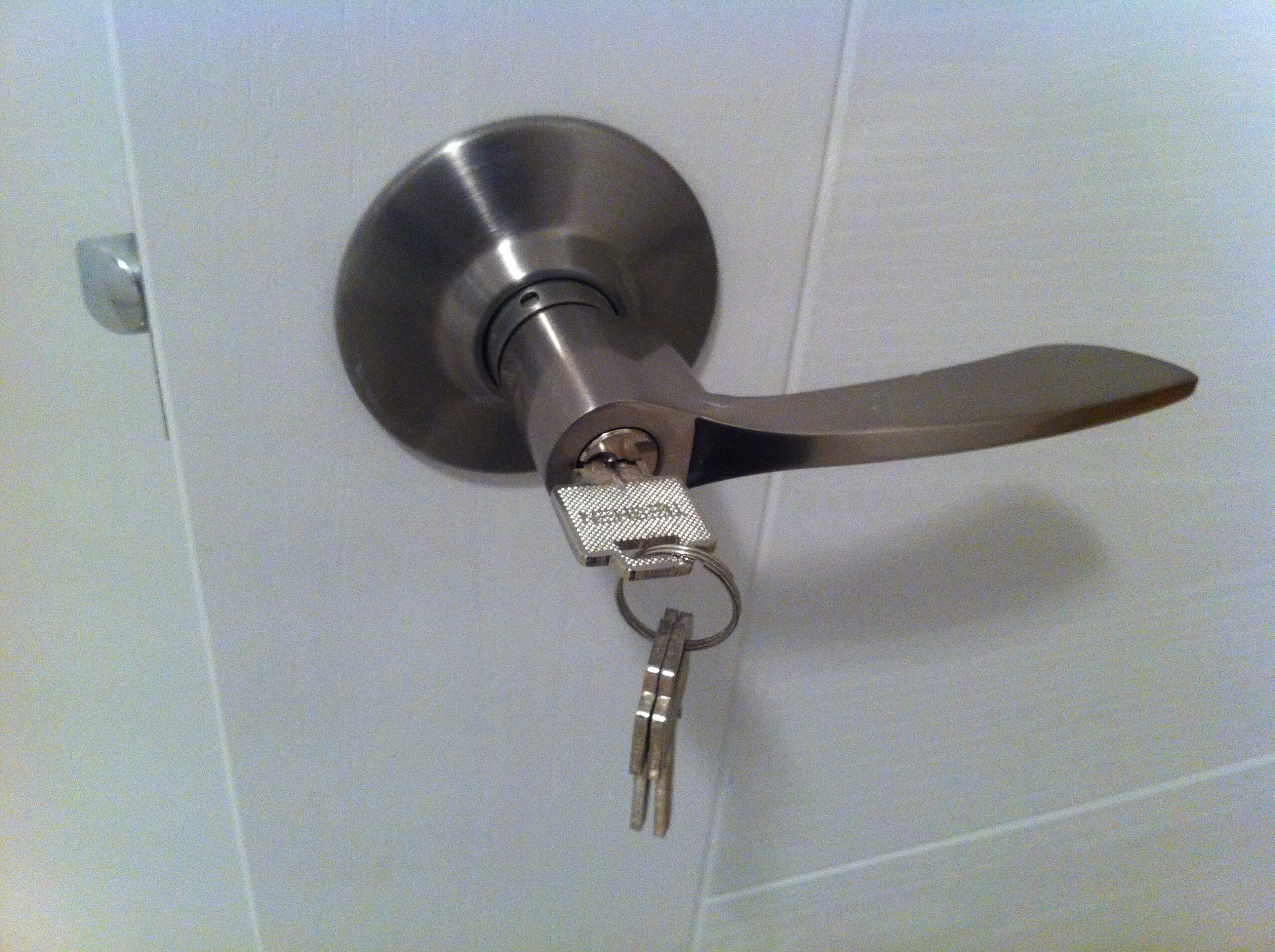
HOPE Atlanta is one of the providers receiving federal dollars from the city as part of the Housing Opportunities for Persons with AIDS program. The nonprofit finds apartments and then pays the rent. But while HOPE Atlanta keeps covering that rent. The city hasn’t kept its end of the deal.
Belchers Albert / wikimedia commons
The city of Atlanta is in charge of millions of dollars in federal funding meant for housing people with HIV and AIDS.
But advocates say that money is not getting to the service providers who need it, simply because of bureaucracy. And that could be preventing more people from receiving help.
Nonprofits have told the city there’s a problem.
“For several months now, we’ve been very transparent,” says Jeff Smythe, executive director of HOPE Atlanta.
It’s one of the providers receiving federal dollars from the city as part of the Housing Opportunities for Persons with AIDS program, often known as HOPWA. The nonprofit finds apartments and then pays the rent.
But while HOPE Atlanta keeps covering that rent, the city hasn’t kept its end of the deal. Smythe says it doesn’t deliver the funding until months later.
“If the city is unable to pay us, at some point, we can’t pay rent anymore, right?” he says. “It makes it impossible for us.”
His nonprofit has tried to make up for the city’s delays. It took out a line of credit, which translates into interest costs for HOPE Atlanta.
But the debt is too much. Smythe says the city recently has owed the nonprofit $1.5 million for case management and rent.
“Several times over the last really four months, we’ve had to pay rent late,” he says. “We have no choice.”
Landlords have imposed late fees — an additional charge for HOPE Atlanta —and even filed evictions.
What upsets advocates like Jeff Graham, leader of the LGBTQ advocacy group Georgia Equality, is this: The city has the money.
“It’s not about the lack of funding,” Graham says. “It’s about a lack of ability to manage these funds in an efficient and effective manner.”
The federal government gives the city grants to reimburse providers. That balance for the Atlanta region is more than $70 million right now, according to the city’s own numbers.
Yet, Graham says that for years the city has had trouble handling those reimbursements in a timely way. At one point, in 2019, more than 200 people faced eviction because of confusion over payments to one provider, the Living Room, which has since closed.
And the situation doesn’t seem to have improved, Graham says. Nonprofits still can wait six to 12 months and shoulder hundreds of thousands of dollars of debt.
He worries some will start scaling back services because of the reimbursement issues.
HOPE Atlanta already has, reluctantly, according to Smythe.
Last fall, the nonprofit decided to reduce its involvement in the program by 50%. That means it will not take on new clients when some leave.
Larry Lehman, president of Positive Impact Health Centers, said his organization has waited on more than $1.5 million from the city, which also has stopped it from accepting new cases.
And more providers are struggling, Graham says.
“We’ve heard so much out of this administration on how they plan to address the urgent housing needs in the city of Atlanta and metro Atlanta region,” he says. “But at this point in time, it is not happening.”
In a statement, the office of Mayor Keisha Lance Bottoms responded that many providers aren’t sending the paperwork necessary for reimbursements.
It also said that because of “inherited issues” with the HIV program, the U.S. Department of Housing and Urban Development has required special monitoring.
HUD said the special review process for the city’s grants, which began in February 2020, imposes conditions on several years of funding. “HUD continues to work with the City of Atlanta to address the conditions that remain open,” its statement said.
If the city is unable to pay us, at some point, we can’t pay rent anymore, right? It makes it impossible for us.”
— Jeff Smythe, executive director of HOPE Atlanta
Still, with some previous restrictions lifted, the city said it is now in the position to allocate grants “swiftly” and “efficiently.”
It has to. The city has a limited number of years to spend this funding, some of which dates back to 2017.
According to HUD, Atlanta had to return $5 million in 2019 because it didn’t spend the money during the required period — a loss that was never made public.
Meanwhile, more than a thousand people remain on the HIV housing program’s waitlist, managed by HOPE Atlanta.
“What gets so lost in all of these conversations is that we’re talking about the lives of families that have to have this basic housing service,” Graham says.
For stable treatment, he says people living with HIV need stable housing.
And it can be hard without help.
Lyneath, which is her middle name, is one of HOPE Atlanta’s clients. She hasn’t been able to work.
“My health was up and down, up and down,” she says.
All of her previous jobs involved being on her feet, but Lyneath is in her 60s now and had cancer recently, in addition to HIV.
She was staying with her daughter when a doctor referred her to the program.
“Without the program and family, it’s really, really difficult to make ends meet,” she says.
She now lives in an apartment in Stone Mountain. She’s able to see her grandchildren on the weekends and is considering whether there is a part-time job she can do from home.
To have a place in this program, Lyneath says she feels she’s one of the lucky ones.
